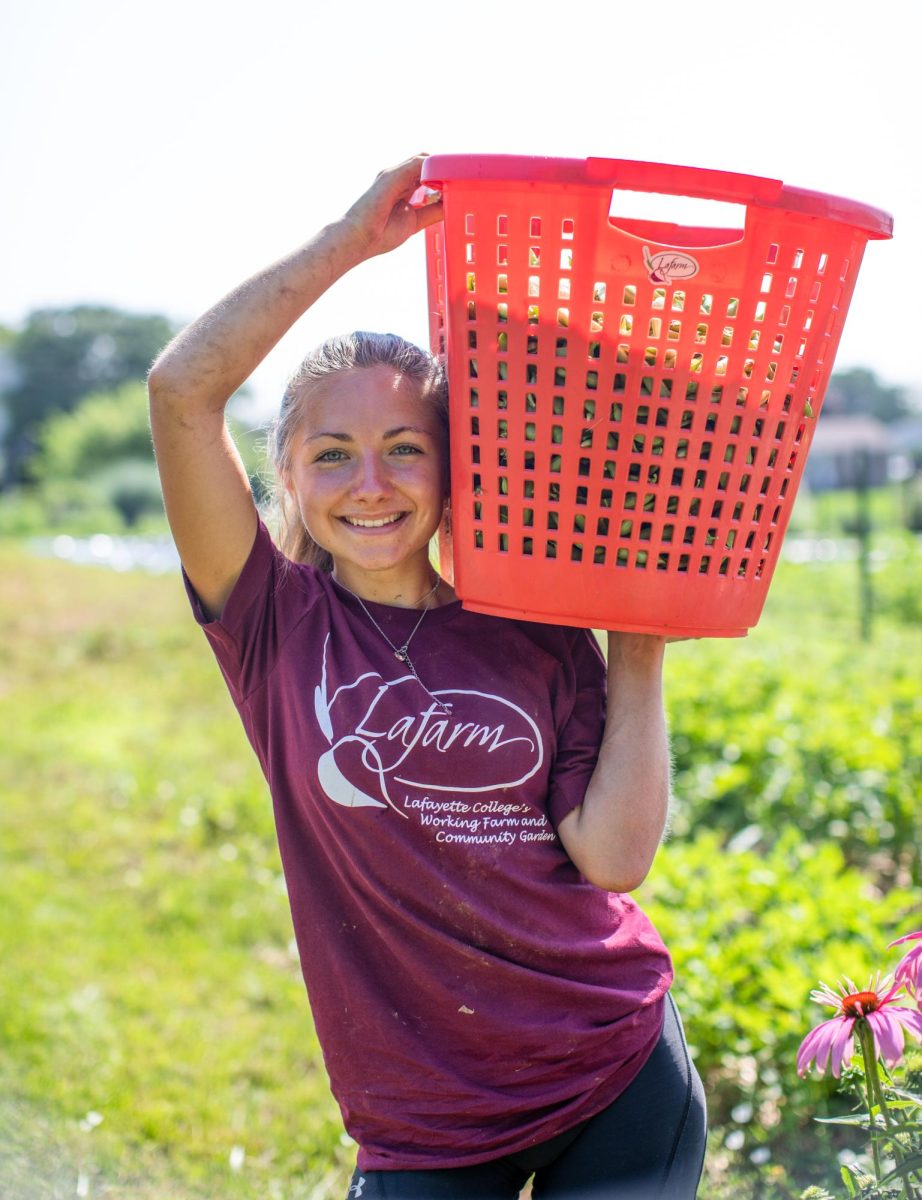Olivia Simione ‘26 has always known she didn’t want a desk job. She grew up in New Hampshire, immersed in dense woods and boulder fields, with a family plot in her community garden. She now serves as the LaFarm food and farm apprentice, working there for hours each week and learning each step of the way.
“I’m definitely not a city person,” Simione said. “I went to New York City once … never again.”
One of the things that drew Simione to Lafayette was that although the location of the school was in close proximity to an urban environment, organizations like LaFarm would allow her access to more natural spaces.
She started working at LaFarm as a first-year before classes even started, and by January of 2023, she had started her training as LaFarm’s apprentice.
The apprenticeship position, first instituted on LaFarm in the spring semester of 2022, follows the Diversified Vegetable Pre-Apprenticeship (DVP) program laid out by Pasa, a Pennsylvania-based nonprofit for sustainable agriculture.
“[Pasa] describes it as the perfect first year of farming,” Josh Parr, who’s been overseeing operations at LaFarm for over a year and a half, said. “The position is totally focused on the production side of the farm … so [Simione’s] kind of my right-hand person throughout the whole year.”
Simione spends hours tending to the farm every week, but she would never claim she has a green thumb. Rather, Simione sees being a farmer as a product of learned skill and patient planning.
“You’re gonna have to do things that you don’t like to do,” Simione said. “Like, say I’m dragging this tarp over the field right now — it’s not as fun as picking the tomatoes, but you know, it’s gonna kill the weeds so that we can have healthy soil that’s not tilled, so it retains the nutrients and eventually, that becomes the tomato. You see the fruit of your labor in a very literal sense.”
Simione often finds herself taking home colorful bouquets left from the farmstand as well as substantial amounts of “misfit” produce: vegetables that are perfectly good to eat, but not exactly marketable.
“Much of my food that I eat in a day, I try to make that from the farm,” Simione said. “I feel such a difference eating foods that I have grown — food that you’ve taken care of and now that food is taking care of you.”
In order to graduate from the program, DVP participants must acquire over 100 skills and competencies outlined by Pasa. These skills cover a wide range of topics from vegetable packing and food sanitation during harvest to mulch distribution and tool use for weed management.
“They’re constantly acquiring skills and becoming more and more valuable members of the farm team,” Parr said. “A student that is working on the farm just during the semester, maybe for six hours a week, is a big help, but they’re not able to acquire skills in the same kind of way.”
To Parr, these skills make Simione a very valuable asset to the farm and make the apprentice position crucial to its running.
“Olivia has this huge amount of skills now,” he said. “I can rely on her to do all these different things really well.”
In February, Pasa will hold its annual conference where Simione will receive her certification for the DVP program.
“That piece of paper … it’s not like a ticket to get me anywhere,” Simione said. “But everything that I’ve learned, the culmination of all those skills, all the personal growth that’s happened on the farm — I would still be doing this even if it didn’t give me a certification.”














































